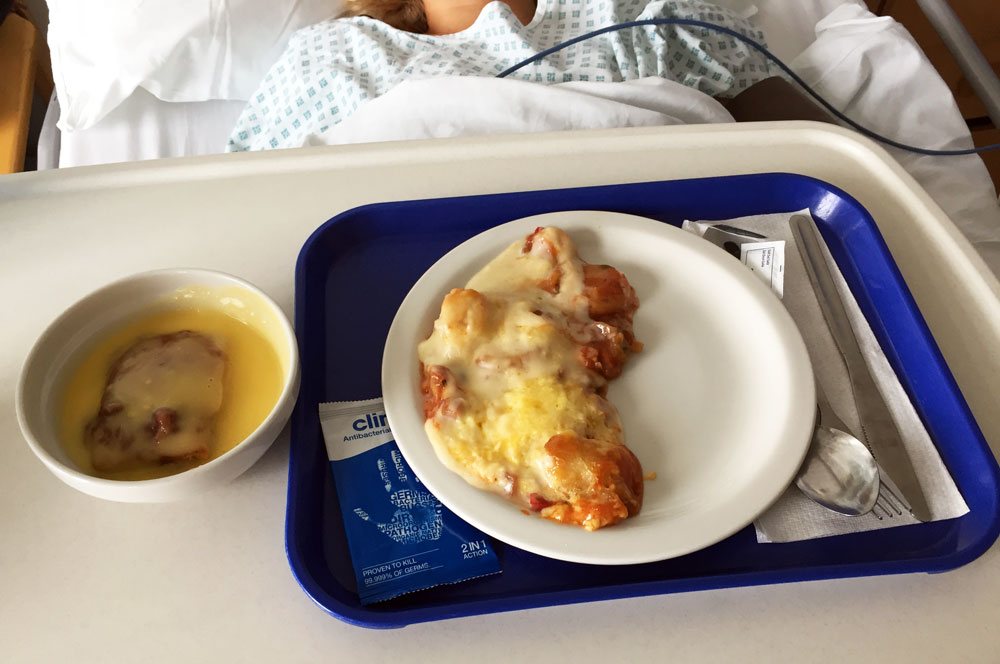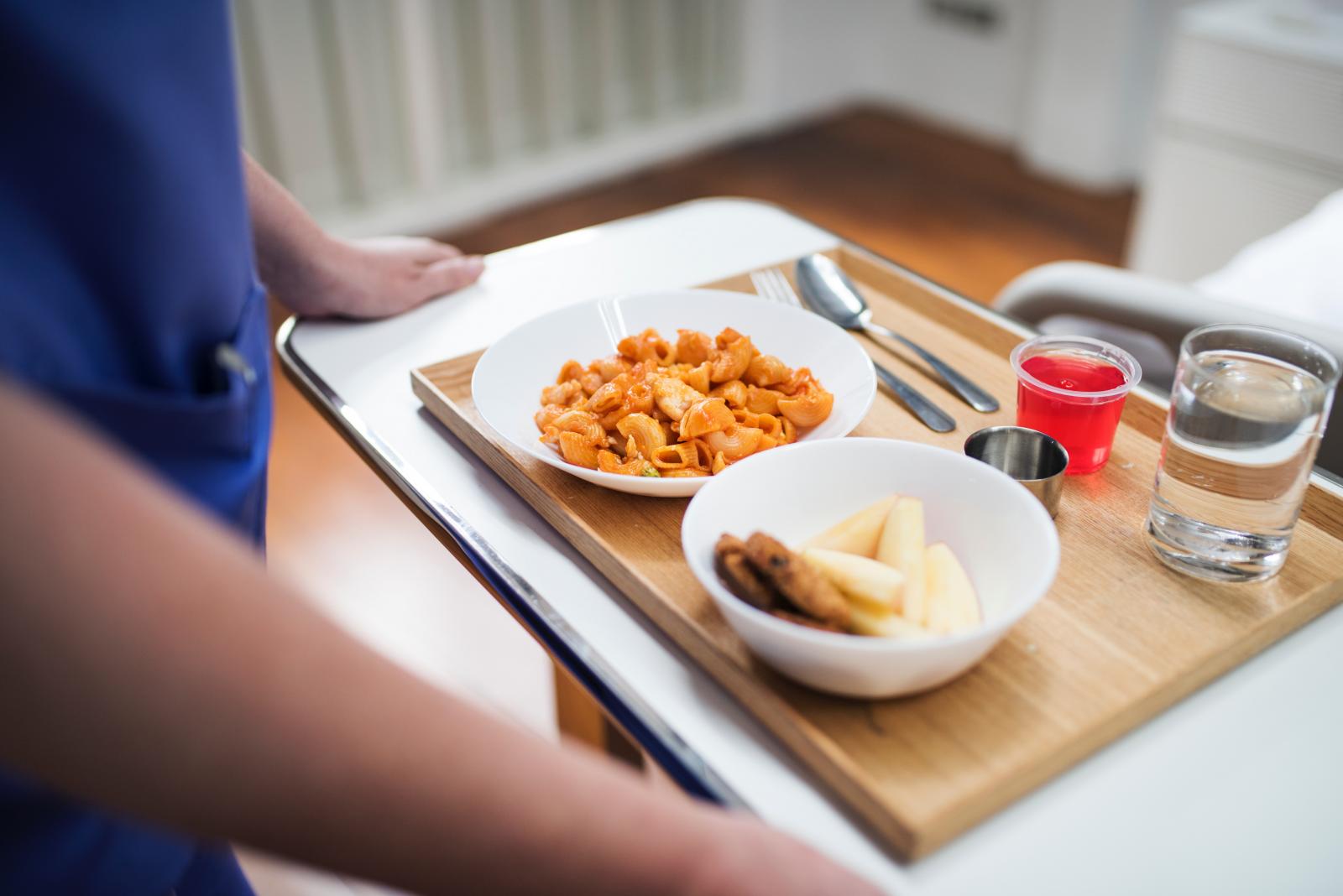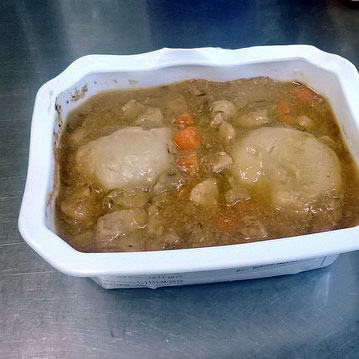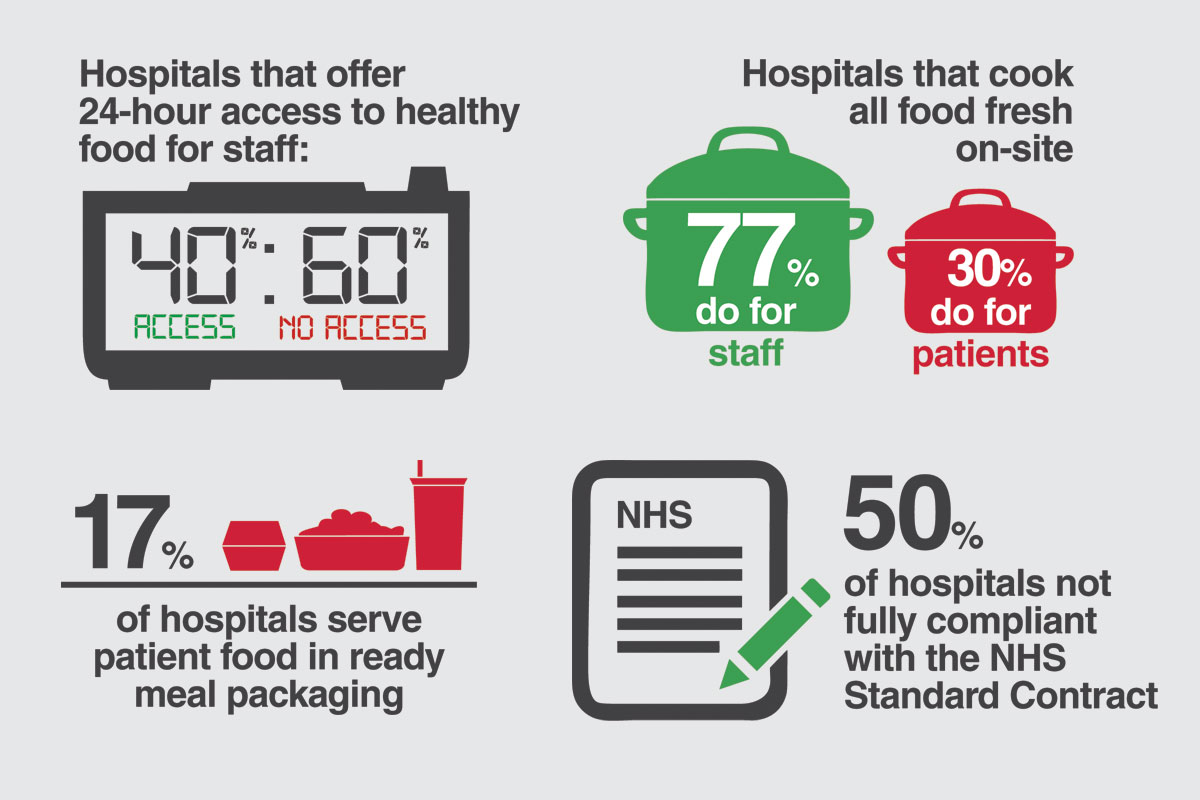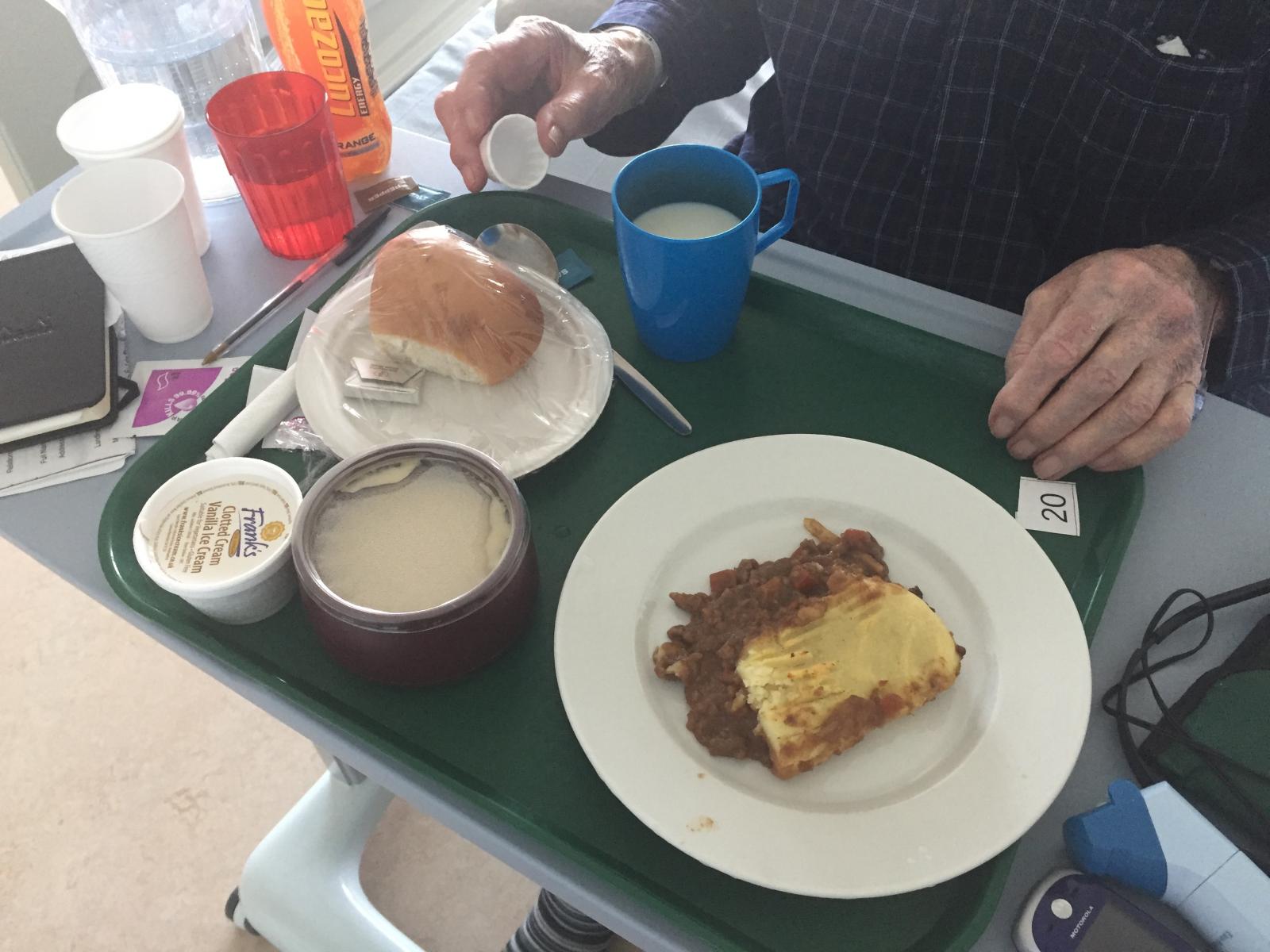Hospitals to be ranked by quality of food
Hospitals will be forced to provide better quality food under legally binding rules after patients tweeted a series of pictures of inadequate and unappealing meals.
Jeremy Hunt, the Health Secretary, has announced new clauses in hospital trust contracts to provide better quality food.
Hospital canteens selling food and drinks to staff, patients and visitors will also have to comply with strict rules on fat, sugar and salt with healthy options available.
However shops, coffee bars and junk food outlets will be exempt meaning chocolate, crisps, burgers and supersized sweet drinks will still be available.
Under a new set of inspections, hospitals will be evaluated on a number of points and ranked on the quality of their food. The results will be available for patients to search on the NHS Choices website.
In the first set of assessments to be released by the Department of Health, Witney Community Hospital in Oxfor, the Alastair Farquharson Centre in North East London and a ward run by Maidstone and Tunbridge Wells NHS Trust at Tonbridge Cottage Hospital were ranked among the worst hospitals in the country for food quality.
Lee Mill Hospital, a 12 bed secure recovery unit in Plymouth, was ranked worst in the country with inspectors rating the quality of food at 35 per cent.
Mr Hunt said: “We are making the NHS more transparent, giving patients the power to compare food on wards and incentivising hospitals to raise their game.
“Many hospitals are already offering excellent food to their patients and staff. But we want to know that all patients have nourishing and appetising food to help them get well faster and stay healthy, which is why we're introducing tough new mandatory standards for the first time ever.”
Hospitals will now be legally required, in their contracts, to ensure staff identify patients who are malnourished and provide a food plan.
They must ensure all patients have protected mealtimes when other nursing care and tests are suspended and staff help those who require it while hospital canteens must comply with recommendations on salt, fat and sugar.
Food must be sourced in a sustainable way so it is healthy and also good for the food industry.
Those that do not comply could face fines.
However, some thought the rules did not go far enough.
Alex Jackson, coordinator of the Campaign for Better Hospital Food resigned from the Hospital Food Panel in April this year in objection to the government’s refusal to enshrine the rules in a new law.
He said: “Jeremy Hunt’s announcement that he will introduce “legally-binding” standards for hospital food appear to fulfil what we have always strived for, yet we’re left feeling that he has pulled the wool over our eyes.
"We want to see hospital food standards set down in legislation, similarly to school food standards, and therefore universally applied to all hospitals and protected by publicly elected representatives for generations to come.
"But the government still refuses to do this and has only committed to including the standards in NHS commissioning contracts, which are long documents full of clauses that without proper enforcement and monitoring can be ignored by hospitals.
"The government may have inserted a new clause in a legal document, but that won’t be what most people consider to be legally-binding. It’s woefully inadequate.
"We’re also alarmed that the government’s food standards are weak and only reflect basic catering and care standards which are already commonly implemented in the NHS, including that ‘tap water is available’ to patients.
"Good things in themselves, but nowhere near ambitious enough to have a transformative effect on patient meals.”
A spokesman for the Department of Health said including the standards in the hospitals' contracts meant the changes could be implemented quickly and without any protracted parliamentary process of introducing new legislation.
The published rankings will be based on a wider set of criteria including offering a choice at breakfast, having fresh fruit always available, menus approved by a dietitian and amount spent per patient per day.
Dianne Jeffrey, chairman of Age UK and chairman of the Hospital Food Standards Panel said: “Being in hospital is often a very worrying experience and it can be made worse when the food is unfamiliar or unappetising and you have no control over what and when you eat and drink.
"Whilst hospitals are not five-star restaurants, it’s important that food and drink is tasty, nourishing and thoughtfully presented so that people can eat as well possible
“Getting hospital food and drink right is critical and should also be considered an important part of someone’s medical care.
"Malnutrition and dehydration pose a real risk for patients if they go unnoticed and untreated.
"We know malnourished people will take longer to recover and suffer from more complications. No hospital can afford to neglect this essential part of their care.
“I believe these recommendations will help busy hospital staff make sure patients get appetising and nutritious food that they want to eat and are given the help they need to do so.”
Janet Davies, executive director at the Royal College of Nursing, said: “Good hospital food is one of the cornerstones of good patient care and nutritious meals are fundamental to a patient’s recovery.
“While hospital food has improved in many parts of the NHS, there is still more to do to ensure consistency in the quality of the meals being provided to patients.
“Many hospital patients need help to eat, for example it can take up to 45 minutes to assist someone with dementia to eat even a small meal, so staff need to have enough time to help feed their patients.
"Hospitals must make sure they have sufficient numbers of suitably trained staff available to deliver this care and assistance for every patient that needs it.”
Katherine Murphy, chief executive of the Patients Association, said: "Whilst great advances have been made in medicine and surgery, hospital food has sadly been ignored. For too long now patients have been offered unappetising, unacceptable food in our hospitals.
"It is vitally important that people in hospital get a balanced diet – otherwise they will only have to stay in hospital longer, at extra cost to the NHS.
"It is no surprise that so many people talk to us about the quality of hospital food. Patients don’t expect restaurant-quality meals, but they do expect and deserve decent and nutritious food.
"For many patients who are in and out of hospital receiving regular treatment, the meal is often the only thing they have to look forward to.
"We are encouraged that the NHS will now have mandatory food standards and that hospitals will be ranked on the quality of their food.
"However, it remains to be seen if hospitals are able to deliver these standards given the strain that already exists on their finances. Hospital food must be given greater priority and appropriate investment."
Professor Edward Baker, deputy chief inspector of hospitals at the Care Quality Commission, said: “It’s really important for patients to have access to good quality food based on their own needs.
"During our inspections, we speak to patients and check records to ensure patients are receiving the right food for their individual needs. Our findings determine which hospitals need closer inspection of their food practices.”
Simon Stevens, chief executive of NHS England, said: “It is time for the NHS set a clear example in providing healthier food for our patients, visitors and also our hardworking staff.
"That’s why NHS England has agreed to include hospital standards in the next NHS Contract, which will be published later this year.”
Daily Telegraph
29 August 2014
Published Friday 29 August 2014
Better Hospital Food: The campaign represents a coalition of organisations calling on the Westminster government to introduce mandatory nutritional, environmental and ethical standards for food served to patients in NHS hospitals in England.
